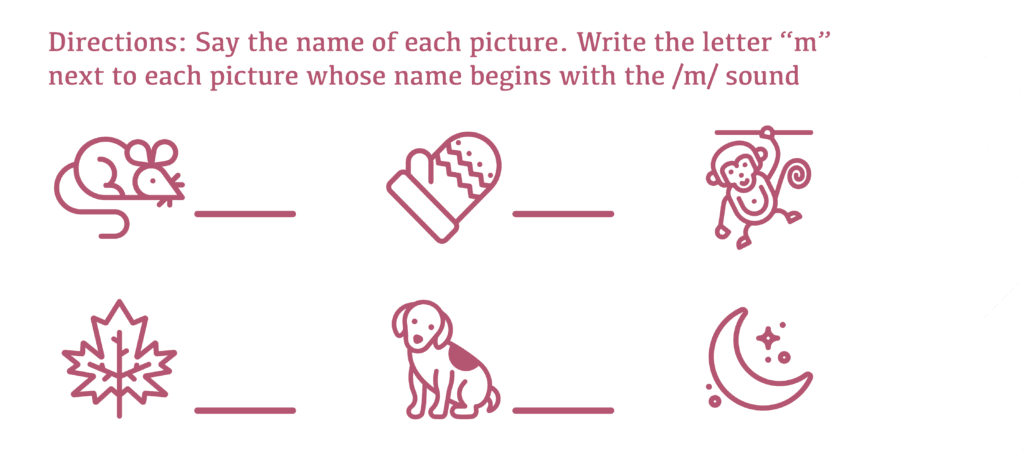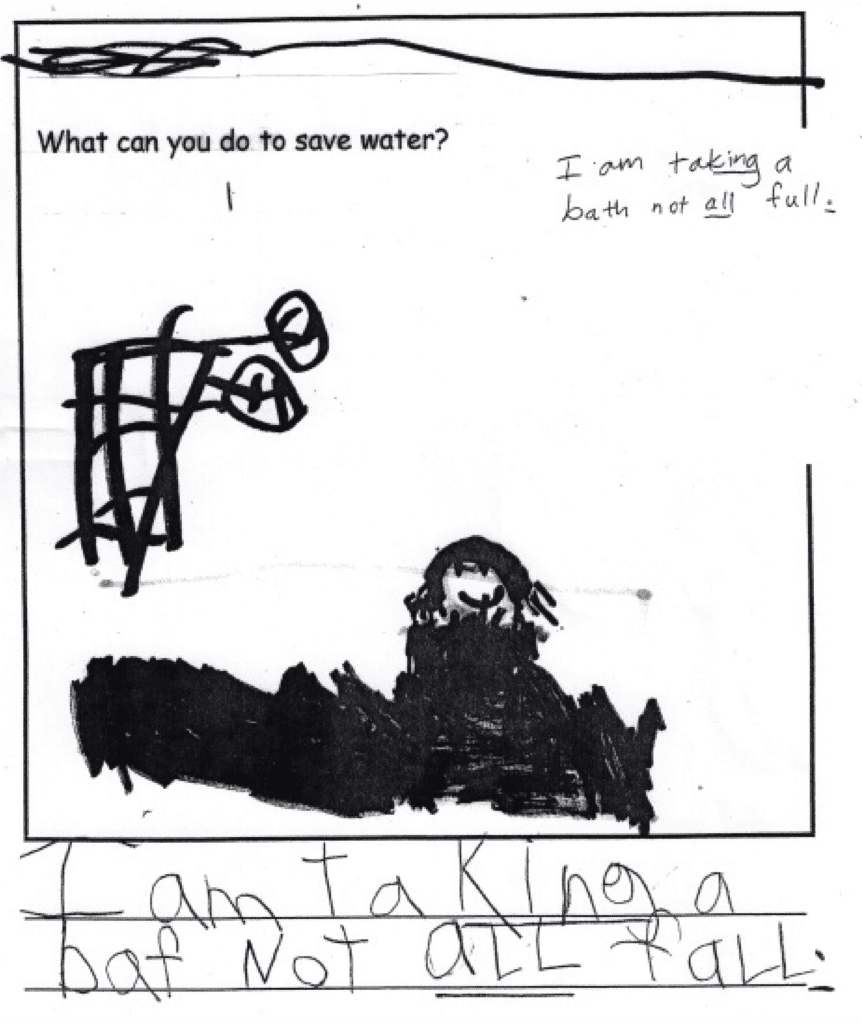English Language Arts
for Kindergarten Students
See what skills your child will learn in English Language Arts, examples of student work and how you can help at home.
Tip: Hover over icons to see definitions of key terms.
This is an example tooltip!

Expectations for Students
Kindergarteners should know the following by the end of the year:
LEARNING TO READ & WRITE
Name all upper- & lower-case letters. Match those letters with their sounds. Write all letters clearly.

Pronounce basic 3-sound words. Rhyme, clap out, & count syllables. Identifying beginning, middle & end sounds in spoken words (phonemic/phonological awareness )
van
hat
can
sad
hog
fan
Pronounce basic 3-sound words. Rhyme, clap out, & count syllables. Identifying beginning, middle & end sounds in spoken words (phonemic/phonological awareness )
van
hat
can
sad
hog
fan
Match letters & sounds to write basic 3-syllable words. Write with spaces between words in a sentence

Plants need water to grow. Plants need sun to grow.
Read decodable texts so the reading is smooth. Follow words from left to right & top to bottom.
LEARNING ABOUT THE WORLD THROUGH TEXT
Ask & answer questions about stories & texts that are read out loud with some help. Retell what happened & explain key ideas.
Use a combination of drawing, speaking & writing to answer a question or describe an event or topic from a text. Children may use simple sentences & some inventive spelling.
Figure out the meaning of unknown words by using pictures & context.
Show something new they have learned from text or about a topic. This can be in any form: speaking & conversation, illustrations, letters, journals, stories, posters, or sentences on the page.
Example Student Work
Kit
Kit can run.
Kit can skip.
Kit can flip and flop.
Kit can swim.
Example Tooltip

Uses illustrations to show what they learned from the text
Uses inventive spelling
Example Tooltip
Everyday Activities
Tips for Talking to Teachers
A strong relationship between families and teachers is key to ensuring students have what they need to succeed. Parent involvement not only leads to higher grades and test scores, but also helps students develop self-confidence, motivation, and social skills. Knowing what questions to ask at school visits and parent-teacher conferences can help you feel confident when it comes to addressing your child’s’ academic needs.

